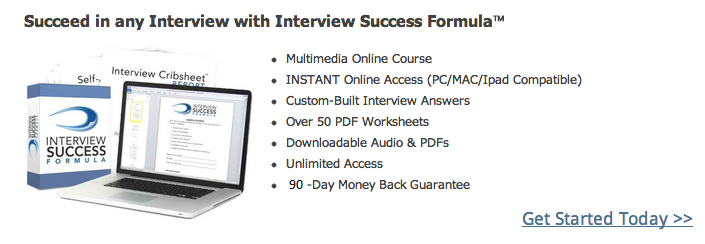 Preparing persuasive job interview answers can become pretty sophisticated. There is a science to persuasion. Academic researchers have studied the subject in detail. They know what can cause people to buy into your ideas, and they know what causes people to lose interest.
Preparing persuasive job interview answers can become pretty sophisticated. There is a science to persuasion. Academic researchers have studied the subject in detail. They know what can cause people to buy into your ideas, and they know what causes people to lose interest.
Using their research, you can prepare more persuasive answers for your next job interview. Let me explain.
First, a disclaimer: persuasion is not deception. I do not encourage you to misrepresent who you are. That can cause a lot of trouble.
Instead, persuasion is about presenting true information in a more effective way. While there are multiple steps in preparing for a job interview, crafting effective answers is one of the most important.
There are four parts to becoming more persuasive.
Part 1: Establish credibility
The interviewer will hire the person he or she most trusts to get the job done. Yet in an interview, you don't have much time to create that trust. And without trust, all of the arguments you make are worthless.
There are two ways to strengthen your credibility: by establishing your expertise and by building a relationship.
To show expertise, first you include in relevant answers the recent trends in your field. That means reading about industry current events as part of your interview preparation. By highlighting these trends, you show that you have both a basic understanding of the space and are aware of how it has changed.
Second, you can also show your expertise by highlighting past accomplishments (more on that to come).
To create a relationship, you can first show common interests. This could be growing up in a similar area, having similar hobbies, or caring about the same professional topics (As you prepare, take a look for this information).
In addition, you can ask questions about the interviewer’s personal work experiences. This helps the interviewer to feel that you are two people having a conversation, rather than an interviewer judging a job candidate.
To further this personal connection, you also want to show how you are a 3-dimensional human being. Discuss your life outside of work, as appropriate. Also, think about how you can present yourself as less than perfect without belittling key work skills (take a look for Brené Brown’s TED talk on vulnerability for more).
Part 2: Show “What’s in it for me?”
One of the biggest mistakes new salespeople make is to focus on how great their product is. Yet the product’s features is not what is most important to the customer. What customer’s really care about is, “How does this product solve my problem?”
In a job interview, that person across the desk is your customer. And you are the salesperson. The product you are selling is you. Don’t simply try to sell them on your features. Instead connect how what you have to offer solves their problems. (And if you want to really peak their interest, explain how your solution will make them better than the competition.)
You likely won't be able to walk into your interview cold and be able to demonstrate this alignment. Make this happen, by investing the preparation time for interview answers to critical questions.
Part 3: Paint a picture (like the most beautiful sunset)
Sometimes information sticks. Other times, it’s quickly forgotten. The difference between the two, could win or lose that job offer.
To prepare persuasive answers, you want to not only use numbers that prove your arguments. You also want to provide examples that can be visualized in the brain of your interviewer. Use details, that can be seen, touched, felt, (and maybe tasted?). Use words that paint a picture. Even an analogy or metaphor can help, as long as it’s not too cliché.
Don’t count on thinking up these critical examples on the spot in your next interview. Develop at least some of this persuasive, vivid language to include in specific answers ahead of time.
Part 4: Add some heart
In the professional world, we are often tempted to seem as rational as possible. Yet emotions can also be a real asset.
If you doubt the power of emotions, think about some of the greatest persuaders out there, children. How many times do their smiles, frowns, and empassioned, Please’s win the day?
Now, even your best pouty face won’t help in your next interview. Yet if you are prepared to show passion, hunger, and enthusiasm for the job, you’ll definitely help your case. Think about what answers these emotions would be appropriate.
Aside from that, you also want to use emotion to be more in tune with your interviewer. For instance, if your interviewer seems quieter, perhaps a bit down, you don’t want to knock them over with super high energy fast-talking. Instead, take a quieter, upbeat attitude.
I hope you can apply these proven persuasion tools as part of preparing the right way for your next interview.


